|
Books Should Be Free Loyal Books Free Public Domain Audiobooks & eBook Downloads |
|
|
Books Should Be Free Loyal Books Free Public Domain Audiobooks & eBook Downloads |
|
History Books |
|---|
|
Book type:
Sort by:
View by:
|
By: Frances Wilson Huard (1885-) | |
|---|---|
 With Those Who Wait
With Those Who Wait
| |
By: Francesco Saverio Nitti (1868-1953) | |
|---|---|
 Peaceless Europe
Peaceless Europe
| |
By: Francis Amasa Walker (1840-1897) | |
|---|---|
 The Indian Question
The Indian Question
| |
By: Francis Andrew March (1863-1926) | |
|---|---|
 History of the World War
History of the World War
This is a popular narrative history of the world's greatest war. Written frankly from the viewpoint of the United States and the Allies, it visualizes the bloodiest and most destructive conflict of all the ages from its remote causes to its glorious conclusion and beneficent results.Two ideals have been before us in the preparation of this necessary work. These are simplicity and thoroughness. It is of no avail to describe the greatest of human events if the description is so confused that the reader loses interest... | |
By: Francis Archibald Bruton | |
|---|---|
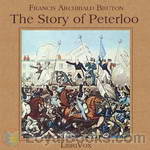 The Story of Peterloo
The Story of Peterloo
On 16th August 1819 around 60,000 people gathered at St. Peter’s Fields, Manchester, to rally for parliamentary reform. Shortly after the meeting began, a troop of Hussars and local yeomanry rode into the crowd, wielding clubs, swords and sabres, leaving 18 dead and more than 700 severely injured. In the following years, the Peterloo Massacre was the subject of several trials and inquiries. It now counts as one of the most significant events in the history of the British labour movement. Francis Archibald Bruton’s account of the day’s events, published for its centenary and based on a detailed examination of contemporary accounts, is both dispassionate and moving... | |
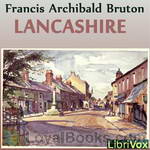 Lancashire
Lancashire
The county of Lancashire in the north-west of England is best known as the engine room of the nineteenth-century Industrial Revolution. Steering clear of the industrial districts, F. A. Bruton takes the reader on an engaging tour of the county's beauty spots and lesser known landscapes. Taking the view that the charm of a district is nothing without its historical associations, Bruton packs his account with historical detail and literary references to, among others, Leland, Wordsworth, Ruskin, Arnold, and Mrs. Carlyle. (Introduction by Phil Benson) | |
 Three Accounts of Peterloo
Three Accounts of Peterloo
A companion volume to F.A. Bruton's 'The Story of Peterloo', the full title of this short collection is 'Three Accounts of Peterloo by Eyewitnesses, Bishop Stanley, Lord Hylton, John Benjamin Smith with Bishop Stanley's Evidence at the Trial'. The three contemporary accounts, each with a short introduction by the editor, give different perspectives on the events of 16 August 1819, when a troop of Hussars accompanied by the local Yeomanry rode into a peaceful reform rally at St. Peter's Fields, Manchester, leaving 18 dead and more than 700 injured. | |
By: Francis Asbury Smith (1837-1915) | |
|---|---|
 The Critics Versus Shakspere A Brief for the Defendant
The Critics Versus Shakspere A Brief for the Defendant
| |
By: Francis Augustus MacNutt (1863-1927) | |
|---|---|
 Bartholomew de Las Casas; his life, apostolate, and writings
Bartholomew de Las Casas; his life, apostolate, and writings
| |
By: Francis Bowen (1811-1890) | |
|---|---|
 A Theory of Creation: A Review of 'Vestiges of the Natural History of Creation'
A Theory of Creation: A Review of 'Vestiges of the Natural History of Creation'
| |
By: Francis Buckley (1881-1949) | |
|---|---|
 Q.6.a and Other places Recollections of 1916, 1917 and 1918
Q.6.a and Other places Recollections of 1916, 1917 and 1918
| |
By: Francis Edward Tourscher (1870-1939) | |
|---|---|
 Work Of The Sisters During The Epidemic Of Influenza October, 1918
Work Of The Sisters During The Epidemic Of Influenza October, 1918
In 1918 over 2,000 Roman Catholic nuns left their convents in the Philadelphia area to nurse the sick and dying of the influenza epidemic. Twenty-three of the sisters died because of their ministrations. This is an account of their heroic work published in the American Catholic Historical Society Of Philadelphia, 1919. “Gathered and arranged from reports of personal experiences of the sisters and contributed by request of the compiler.” The compiler/author was an academic/priest at Villanova University in Pennsylvania. Since there are no chapter headings, this recording uses the section headings of the book. - Summary by David Wales and book's subtitle | |
By: Francis Edward Younghusband (1863-1942) | |
|---|---|
 The Heart of Nature or, The Quest for Natural Beauty
The Heart of Nature or, The Quest for Natural Beauty
| |
By: Francis Hamilton (1762-1829) | |
|---|---|
 An Account of The Kingdom of Nepal And of the Territories Annexed to this Dominion by the House of Gorkha
An Account of The Kingdom of Nepal And of the Territories Annexed to this Dominion by the House of Gorkha
| |
By: Francis Haverfield (1860-1919) | |
|---|---|
 Roman Britain in 1914
Roman Britain in 1914
| |
 The Romanization of Roman Britain
The Romanization of Roman Britain
| |
By: Francis Hervé | |
|---|---|
 How to Enjoy Paris in 1842 Intended to Serve as a Companion and Monitor, Containing Historical, Political, Commercial, Artistical, Theatrical And Statistical Information
How to Enjoy Paris in 1842 Intended to Serve as a Companion and Monitor, Containing Historical, Political, Commercial, Artistical, Theatrical And Statistical Information
| |
By: Francis J. (Francis James) Lippitt (1812-1902) | |
|---|---|
 A Treatise on the Tactical Use of the Three Arms: Infantry, Artillery, and Cavalry
A Treatise on the Tactical Use of the Three Arms: Infantry, Artillery, and Cavalry
| |
By: Francis Key Howard (1826-1872) | |
|---|---|
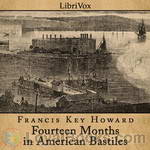 Fourteen Months in American Bastiles
Fourteen Months in American Bastiles
Francis Key Howard recounts in this book his life as a political prisoner of the United States. He points out that he was held captive at the same location where his grandfather was inspired to write the national anthem about the "land of the free," which makes a very stunning contrast. The sufferings that were imposed on him by the Union forces had the effect of solidifying his determination to resist unjust governmental dictates. (Introduction by Katie Riley) | |
By: Francis L. (Francis Lister) Hawks (1798-1866) | |
|---|---|
 The Adventures of Daniel Boone: the Kentucky rifleman
The Adventures of Daniel Boone: the Kentucky rifleman
| |
By: Francis M. Walters | |
|---|---|
 Physiology and Hygiene
Physiology and Hygiene
Physiology and Hygiene for Secondary Schoolsby Francis M. Walters, A.M.PREFACE The aim in the preparation of this treatise on the human body has been, first, to set forth in a teachable manner the actual science of physiology; and second, to present the facts of hygiene largely as applied physiology. The view is held that right living consists in the harmonious adjustment of one's habits to the nature and plan of the body, and that the best preparation for such living is a correct understanding of the physical self... | |
By: Francis Parkman | |
|---|---|
 Pioneers of France in the New World
Pioneers of France in the New World
Francis Parkman (1823-1893) has been hailed as one of America’s first great historians and as a master of narrative history. Numerous translations have spread the books around the world. The American writer and literary critic Edmund Wilson (1895-1972) in his book O Canada (1965), described Parkman’s France and England in North America in these terms: The clarity, the momentum and the color of the first volumes of Parkman’s narrative are among the most brilliant achievements of the writing of history as an art... | |
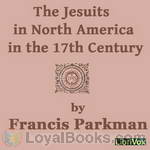 The Jesuits in North America in the 17th Century
The Jesuits in North America in the 17th Century
Parkman has been hailed as one of America's first great historians and as a master of narrative history. Numerous translations have spread the books around the world. The American writer and literary critic Edmund Wilson (1895-1972) in his book "O Canada" (1965), described Parkman’s France and England in North America in these terms: "The clarity, the momentum and the color of the first volumes of Parkman’s narrative are among the most brilliant achievements of the writing of history as an art... | |
 France and England in North America; a Series of Historical Narratives — Part 3
France and England in North America; a Series of Historical Narratives — Part 3
| |
 A Half Century of Conflict - Volume I France and England in North America
A Half Century of Conflict - Volume I France and England in North America
| |
By: Francis Parkman, Jr. | |
|---|---|
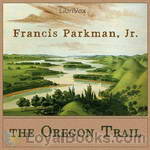 The Oregon Trail
The Oregon Trail
The book is a breezy, first-person account of a 2 month summer tour of the U.S. states of Nebraska, Wyoming, Colorado, and Kansas when Parkman was 23. Proofed and produced by Karen Merline. | |
 Montcalm and Wolfe
Montcalm and Wolfe
Francis Parkman (1823-1893) has been hailed as one of America's great nineteenth century historians, along with William Prescott, John Lothrop Motley, George Bancroft, and Henry Adams. He is a master of narrative history and is most known for his "The Oregon Trail" and his seven volume work on the history of the French and English in North America. "Montcalm and Wolfe", the seventh and last volume of the series, covers the conflict between England and France for supremacy in the New World from 1745 to 1884... | |
 Conspiracy of Pontiac and the Indian War after the Conquest of Canada
Conspiracy of Pontiac and the Indian War after the Conquest of Canada
"The Conspiracy of Pontiac" was Parkman's first history book and first published in 1851. It covers the Indian wars of 1763 to 1769. Pontiac, an Ottawa chief, put together a coalition of Indian tribes from around the Great Lakes region and the Illinois and Ohio Countries to attack the British under General Jeffrey Amherst. - Summary by Richard Carpenter | |
 La Salle, Discovery of The Great West
La Salle, Discovery of The Great West
Parkman has been hailed as one of America's first great historians and as a master of narrative history. Numerous translations have spread the books around the world. The American writer and literary critic Edmund Wilson in his book O Canada , described Parkman’s France and England in North America in these terms: The clarity, the momentum and the color of the first volumes of Parkman’s narrative are among the most brilliant achievements of the writing of history as an art. Parkman's biases, particularly his attitudes about nationality, race, and especially Native Americans, has generated criticism... | |
By: Francis Rolt-Wheeler | |
|---|---|
 The Boy With the U.S. Census
The Boy With the U.S. Census
THE BOY WITH THE U.S. CENSUSBY FRANCIS ROLT-WHEELERPREFACELife in America to-day is adventurous and thrilling to the core. Border warfare of the most primitive type still is waged in mountain fastnesses, the darkest pages in the annals of crime now are being written, piracy has but changed its scene of operations from the sea to the land, smugglers ply a busy trade, and from their factory prisons a hundred thousand children cry aloud for rescue. The flame of Crusade sweeps over the land and the call for volunteers is abroad... | |
By: Francis S. (Francis Samuel) Drake (1828-1885) | |
|---|---|
 Tea Leaves Being a Collection of Letters and Documents relating to the shipment of Tea
Tea Leaves Being a Collection of Letters and Documents relating to the shipment of Tea
| |
By: Francis Sydney Marvin (1863-1943) | |
|---|---|
 Progress and History
Progress and History
| |